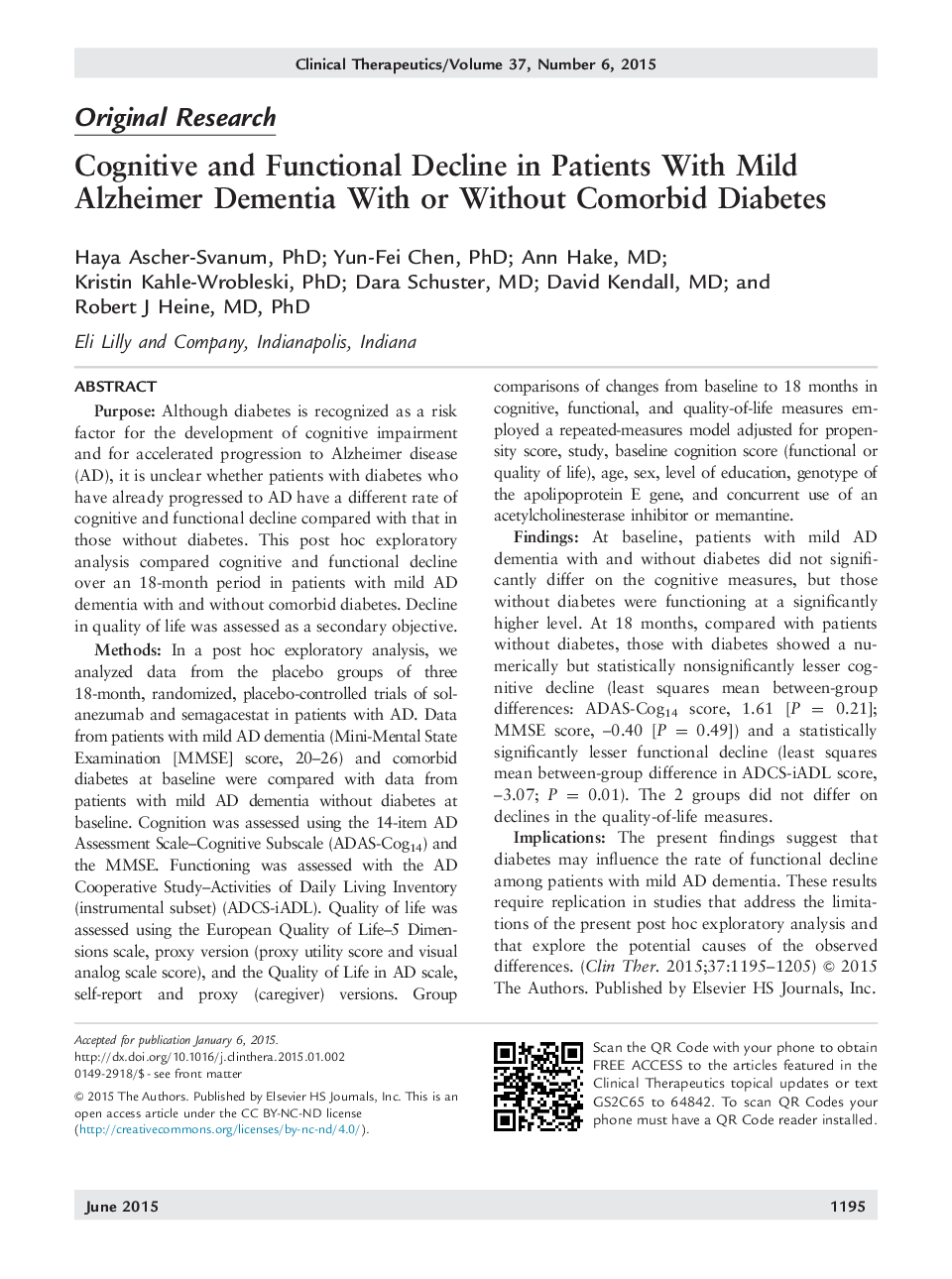| کد مقاله | کد نشریه | سال انتشار | مقاله انگلیسی | نسخه تمام متن |
|---|---|---|---|---|
| 5825289 | 1119893 | 2015 | 11 صفحه PDF | دانلود رایگان |
PurposeAlthough diabetes is recognized as a risk factor for the development of cognitive impairment and for accelerated progression to Alzheimer disease (AD), it is unclear whether patients with diabetes who have already progressed to AD have a different rate of cognitive and functional decline compared with that in those without diabetes. This post hoc exploratory analysis compared cognitive and functional decline over an 18-month period in patients with mild AD dementia with and without comorbid diabetes. Decline in quality of life was assessed as a secondary objective.MethodsIn a post hoc exploratory analysis, we analyzed data from the placebo groups of three 18-month, randomized, placebo-controlled trials of solanezumab and semagacestat in patients with AD. Data from patients with mild AD dementia (Mini-Mental State Examination [MMSE] score, 20-26) and comorbid diabetes at baseline were compared with data from patients with mild AD dementia without diabetes at baseline. Cognition was assessed using the 14-item AD Assessment Scale-Cognitive Subscale (ADAS-Cog14) and the MMSE. Functioning was assessed with the AD Cooperative Study-Activities of Daily Living Inventory (instrumental subset) (ADCS-iADL). Quality of life was assessed using the European Quality of Life-5 Dimensions scale, proxy version (proxy utility score and visual analog scale score), and the Quality of Life in AD scale, self-report and proxy (caregiver) versions. Group comparisons of changes from baseline to 18 months in cognitive, functional, and quality-of-life measures employed a repeated-measures model adjusted for propensity score, study, baseline cognition score (functional or quality of life), age, sex, level of education, genotype of the apolipoprotein E gene, and concurrent use of an acetylcholinesterase inhibitor or memantine.FindingsAt baseline, patients with mild AD dementia with and without diabetes did not significantly differ on the cognitive measures, but those without diabetes were functioning at a significantly higher level. At 18 months, compared with patients without diabetes, those with diabetes showed a numerically but statistically nonsignificantly lesser cognitive decline (least squares mean between-group differences: ADAS-Cog14 score, 1.61 [P = 0.21]; MMSE score, -0.40 [P = 0.49]) and a statistically significantly lesser functional decline (least squares mean between-group difference in ADCS-iADL score, -3.07; P = 0.01). The 2 groups did not differ on declines in the quality-of-life measures.ImplicationsThe present findings suggest that diabetes may influence the rate of functional decline among patients with mild AD dementia. These results require replication in studies that address the limitations of the present post hoc exploratory analysis and that explore the potential causes of the observed differences.
Journal: Clinical Therapeutics - Volume 37, Issue 6, 1 June 2015, Pages 1195-1205
